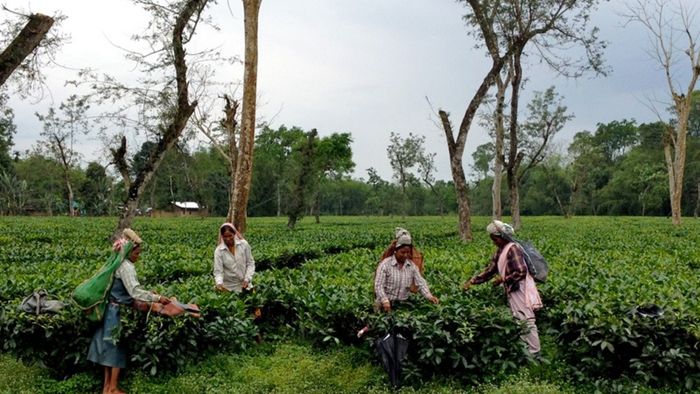Assam moves to grant land rights to tea workers; bill seeks removal of ‘labour lines’ from plantation land
The Assam government on November 25 introduced a key amendment bill in the state Assembly to exclude tea garden ‘labour lines’ from land reserved for ancillary plantation activities, paving the way for distributing such land to tea workers for their housing ownership. Revenue and Disaster Management Minister Keshab Mahanta tabled

- Nov 25, 2025,
- Updated Nov 25, 2025, 9:19 PM IST
The Assam government on November 25 introduced a key amendment bill in the state Assembly to exclude tea garden ‘labour lines’ from land reserved for ancillary plantation activities, paving the way for distributing such land to tea workers for their housing ownership. Revenue and Disaster Management Minister Keshab Mahanta tabled
The Assam Fixation of Ceiling on Land Holdings (Amendment) Act, 2025 with the Speaker’s permission.
According to the statement of objects and reasons, the amendment is aimed at addressing evolving land-use priorities and ensuring optimal utilisation of surplus land in tea estates, excluding that held by small growers. The bill seeks to remove labour colonies from the definition of “ancillary purpose”, a shift that would allow the government to identify surplus land and redeploy it for development-oriented and redistributive purposes.
The government said tea garden workers currently reside on land without clear legal titles, leaving them without statutory protection. The amendment intends to formally secure their land rights by allowing these labour line areas to be resumed as surplus land for allotment. The extent of land to be given per worker’s family will be notified periodically.
A tea garden worker, as defined in the bill, includes both permanent and temporary workers—as well as their descendants—living in labour line areas of tea estates on the date of commencement of the Act, limited to Tea Tribe and Adivasi communities notified by the government.
The bill also introduces new sub-sections to strengthen the mechanism for assessment and recovery of penalties. “These measures bring transparency, prevent misuse of ancillary classifications and strengthen accountability in the administration of ancillary plantation land,” it stated.
The financial memorandum estimates that compensation to tea estates—computed at Rs 3,000 per bigha for labour line land—would amount to approximately Rs 65.57 crore. Assam has 825 tea estates, with around 2,18,553 bighas under labour colonies. The government said the compensation will be met through existing budgetary allocations, while development of the resumed land will be aligned with ongoing state and central schemes.